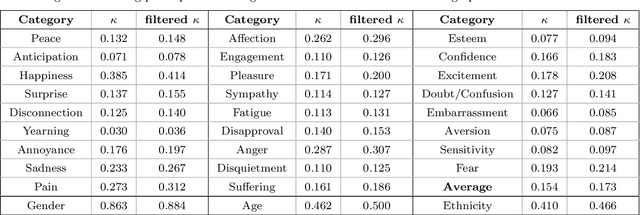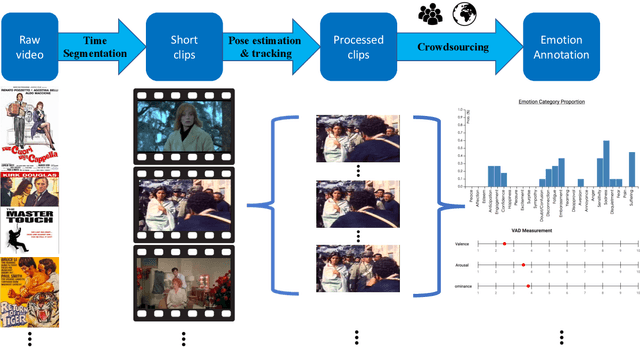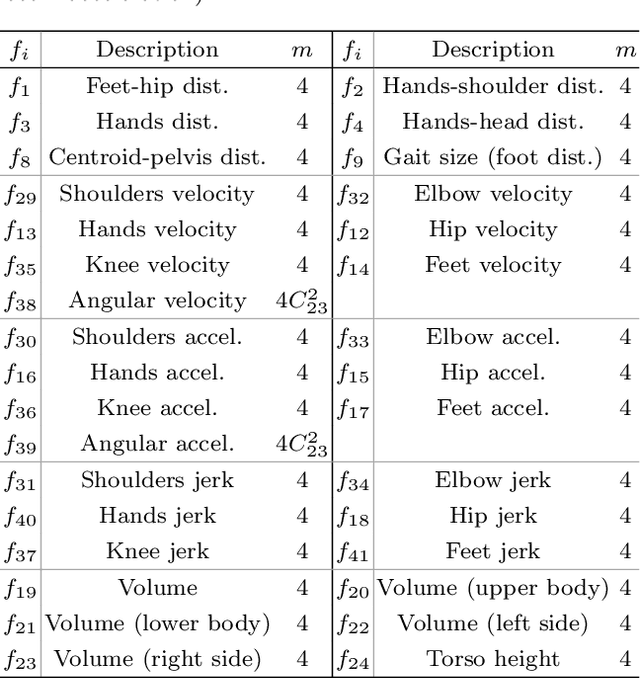ARBEE: Towards Automated Recognition of Bodily Expression of Emotion In the Wild
Paper and Code
Aug 28, 2018



Humans are arguably innately prepared to possess the ability to comprehend others' emotional expressions from subtle body movements. A number of robotic applications become possible if robots or computers can be empowered with this capability. Recognizing human bodily expression automatically in unconstrained situations, however, is daunting due to the lack of a full understanding about relationship between body movements and emotional expressions. The current research, as a multidisciplinary effort among computer and information sciences, psychology, and statistics, proposes a scalable and reliable crowdsourcing approach for collecting in-the-wild perceived emotion data for computers to learn to recognize body languages of humans. To do this, a large and growing annotated dataset with 9,876 body movements video clips and 13,239 human characters, named BoLD (Body Language Dataset), has been created. Comprehensive statistical analysis revealed many interesting insights from the dataset. A system to model the emotional expressions based on bodily movements, named ARBEE (Automated Recognition of Bodily Expression of Emotion), has also been developed and evaluated. Our feature analysis shows the effectiveness of Laban Movement Analysis (LMA) features in characterizing arousal. Our experiments using a deep model further demonstrate computability of bodily expression. The dataset and findings presented in this work will likely serve as a launchpad for multiple future discoveries in body language understanding that will make future robots more useful as they interact and collaborate with humans.
 Add to Chrome
Add to Chrome Add to Firefox
Add to Firefox Add to Edge
Add to Edge